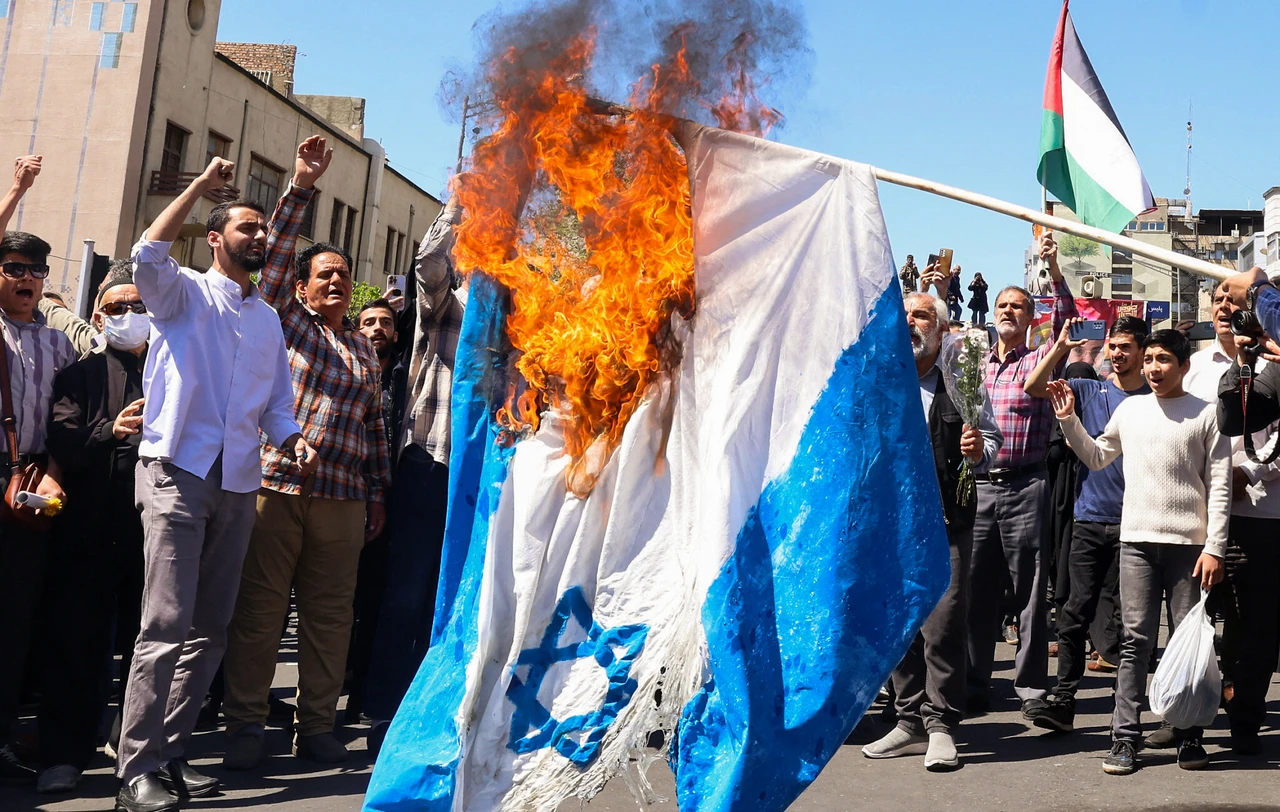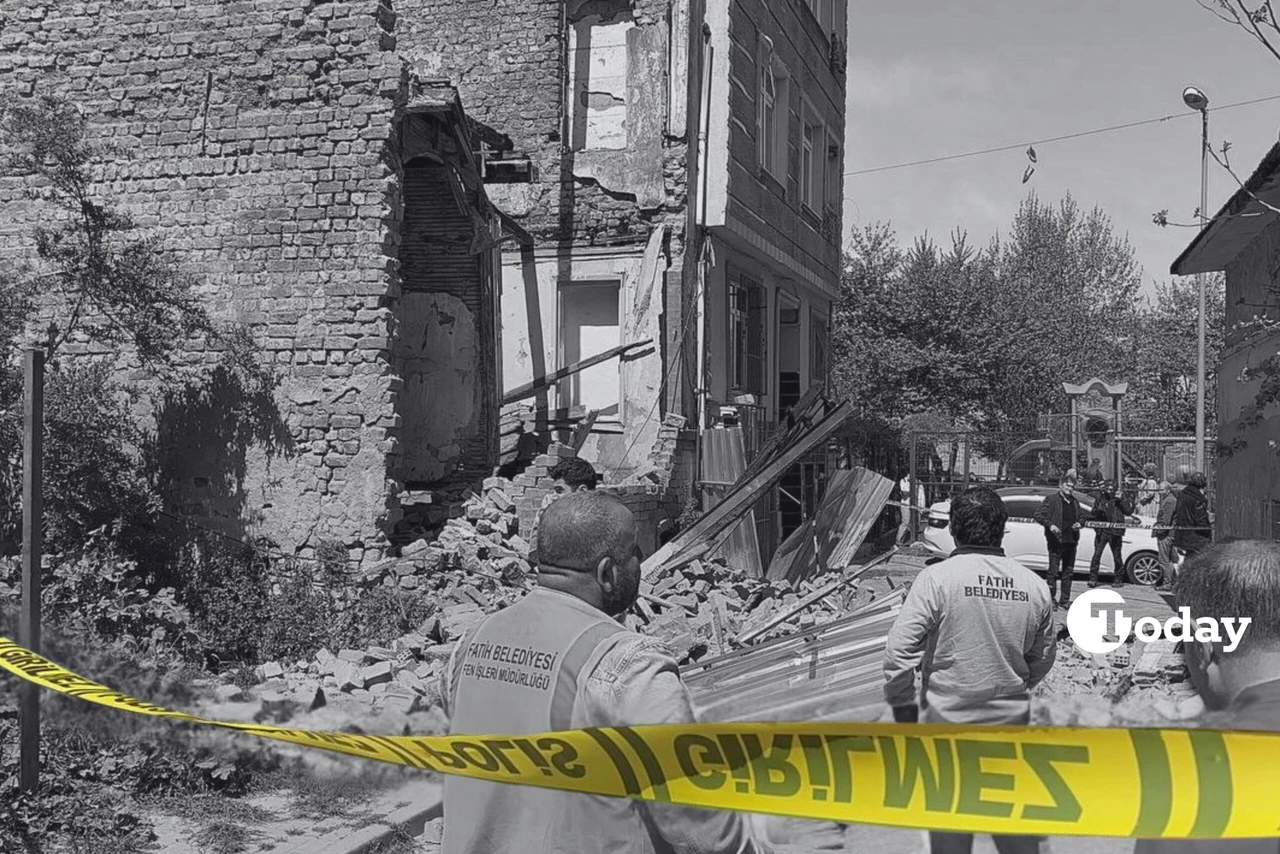Fears of Iranian retaliation drive Israelis to stockpile food, seek psychological support
 Iranians burn an Israeli flag during the funeral ceremony of Hamas terror group leader Ismail Haniyeh and his bodyguard, who were killed in an assassination blamed on Israel on Wednesday, at Enqelab-e-Eslami (Islamic Revolution) Sq. in Tehran, Iran, Aug. 1, 2024. (AP Photo)
Iranians burn an Israeli flag during the funeral ceremony of Hamas terror group leader Ismail Haniyeh and his bodyguard, who were killed in an assassination blamed on Israel on Wednesday, at Enqelab-e-Eslami (Islamic Revolution) Sq. in Tehran, Iran, Aug. 1, 2024. (AP Photo)
The assassinations of Hamas leader Ismail Haniyeh in Tehran and Hezbollah commander Fuad Shukur in Beirut have sparked widespread fear in Israel of a potential Iranian retaliation.
This fear is leading to significant changes in the daily lives of Israelis.
Israelis prefer to stay at home
- Hoarding essentials: In response to the escalating tension, Israelis are stockpiling food. After the assassination of Haniyeh, ice cream sales surged by 260%. Demand for non-perishable items like canned tuna, corn, and pickles rose by 140%.
- Avoiding public spaces: Many Israelis have begun avoiding restaurants and cafes, preferring to stay at home. For instance, reservations at a popular Tel Aviv restaurant dropped by 50% over the weekend. Conversely, pizza orders have increased, with a 40% rise over the weekend as more people opt to dine at home.
Increase in alcohol consumption in Tel Aviv
- Coping mechanism: There has been a noticeable rise in alcohol consumption, particularly in central Israel. A bar owner in Rishon Lezion noted that patrons are drinking more in an attempt to alleviate their anxiety about the situation.
Damaged mental health
- Seeking psychological help: The demand for psychological services has soared, making it difficult to secure appointments with psychologists and psychiatrists. The average session cost has risen to 450 shekels ($122.5). One psychologist reported a “crazy” increase in demand, forcing them to work longer hours to accommodate the influx of patients.
- Medication spike: The need for sleep aids and tranquilizers has also increased by 30%, reflecting the widespread anxiety among Israelis.
Many Israeli citizens stuck abroad
Many international airlines have suspended flights to Tel Aviv, leaving thousands of Israelis stranded abroad.
Meanwhile, those seeking to leave the country are booking flights with airlines like Corendon Europe, which continue to operate.
What caused turmoil in Israel?
On July 30, Fuad Shukur, a senior Hezbollah commander, was killed in an Israeli airstrike in Beirut. The next day, Hamas political bureau chief Ismail Haniyeh was assassinated in Tehran.
In response to these high-profile assassinations, the Israeli government has expressed concerns over potential retaliatory actions from Hezbollah and Iran, leading to heightened security measures and public anxiety across the country.



